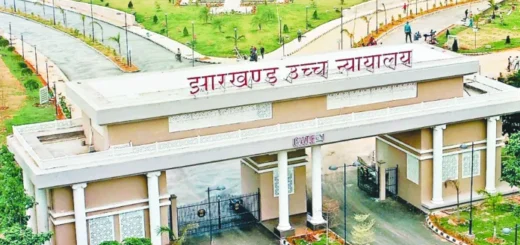The Supreme Court has ruled that the provisions of the UP Madarsa Act regarding higher education degrees like ‘Fazil’ and ‘Kamil’ are unconstitutional, conflicting with the UGC Act.

The Supreme Court has ruled that parts of the U.P. Board of Madarsa Education Act, which try to control the Fazil and Kamil degrees, are unconstitutional. The panel, including Chief Justice DY Chandrachud, Justice JB Pardiwala, and Justice Manoj Misra, stated that these state rules conflict with the University Grants Commission (UGC) Act, which is based on Entry 66 of List I, making them beyond the powers of state governments. However, the Court confirmed that the Act itself is valid under the State Legislature’s authority and overturned the Allahabad High Court’s decision that deemed it unconstitutional.
Entry 66 of List I in the Indian Constitution gives Parliament the sole power to legislate on the standards for higher education and research institutions. The UGC Act was created by Parliament to maintain consistent quality in higher education across India. The Court noted, “The Madarsa Act is based on Entry 25 of List III. Our consistent rulings show that the UGC Act governs the standards in higher education. Thus, any state law that tries to regulate higher education in a way that conflicts with the UGC Act is beyond the State Legislature’s authority.”
The Court pointed out an important rule that central laws under Entry 66 take priority over state laws, particularly those related to higher education standards. Referring to the 2005 case of Prof. Yashpal & Anr vs. State of Chhattisgarh, the Court confirmed that if the UGC Act specifies certain standards, any state laws that differ or conflict are considered unconstitutional. According to Section 22 of the UGC Act, only institutions recognized by central or state laws, deemed universities, or those authorized by Parliament can issue degrees. However, the Madarsa Act allows state Boards to regulate areas like curriculum, exams, and degrees such as Fazil and Kamil, which are equivalent to bachelor’s and master’s degrees. The Court determined that these provisions clashed with Section 22 of the UGC Act, which limits degree-granting authority to centrally recognized institutions.
The Bench decided that the UGC Act’s requirement to coordinate and standardize higher education in India makes it the main law. This means states cannot regulate degrees or courses on their own without following UGC standards. The Bench stated, “The Madarsa Act, in its attempt to regulate higher education and the degrees of Fazil and Kamil, goes beyond what the State Legislature can do because it conflicts with Section 22 of the UGC Act. Entry 25 of List III, under which the Madarsa Act was created, is subject to Entry 66 of List I. The UGC Act sets the standards for higher education, and state laws cannot regulate it in a way that goes against the UGC Act.”
Cause Title: Anjum Kadari & Anr. v. Union of India & Ors. [Neutral Citation No. 2024 INSC 831]








